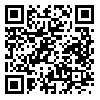Abstract: (80 Views)
Introduction: Various factors influence high-risk behaviors. One of the important and influencing factors on people's behavior and actions is their religious beliefs. According to various experts, religion has a controlling role on the deviant behavior of people and always invites people to do good deeds and reward them in return. When children enter adolescence, the role of peers in their lives increases. Social support is one of the other variables that can play a role in reducing risky behaviors. The aim of the present study was to investigate religiosity, social support and peer rejection on high-risk behaviors of secondary school female students in Darudzen district of Shiraz.
Method: Descriptive, correlational research method and the target population included all students of the second secondary level of Darudzen district of Shiraz, which was announced based on the statistics of 600 people, and the research sample was 234 people based on the Morgan table, and this number of people was based on the sample method They were randomly selected. The measurement tools in this research included: Religiosity Questionnaire by Glock and Stark (1965), Risk Acceptance of Iranian Teenagers by Zadeh-Mohammadi and Ahmadabadi (2008), Peer Rejection by Tahmasian (1384) and Social Support by Fleming et al. (1982). Correlation test and regression analysis were used to analyze the data.
Findings: There is a negative relationship between religiosity, social support, and risky behaviors, and a significant positive relationship between peer rejection and risky behaviors among female high school students. In addition, religiosity, rejection of peers and social support are predictors of high-risk behaviors of female secondary school students.
Discussion: Religiosity, social support, peer rejection are determinants of students' high-risk behaviors.
Method: Descriptive, correlational research method and the target population included all students of the second secondary level of Darudzen district of Shiraz, which was announced based on the statistics of 600 people, and the research sample was 234 people based on the Morgan table, and this number of people was based on the sample method They were randomly selected. The measurement tools in this research included: Religiosity Questionnaire by Glock and Stark (1965), Risk Acceptance of Iranian Teenagers by Zadeh-Mohammadi and Ahmadabadi (2008), Peer Rejection by Tahmasian (1384) and Social Support by Fleming et al. (1982). Correlation test and regression analysis were used to analyze the data.
Findings: There is a negative relationship between religiosity, social support, and risky behaviors, and a significant positive relationship between peer rejection and risky behaviors among female high school students. In addition, religiosity, rejection of peers and social support are predictors of high-risk behaviors of female secondary school students.
Discussion: Religiosity, social support, peer rejection are determinants of students' high-risk behaviors.
Article number: 7
Type of Study: orginal |
Received: 2024/07/9 | Accepted: 2025/01/22 | Published: 2025/04/4
Received: 2024/07/9 | Accepted: 2025/01/22 | Published: 2025/04/4
Send email to the article author
| Rights and permissions | |
 |
This work is licensed under a Creative Commons Attribution-NonCommercial 4.0 International License. |






